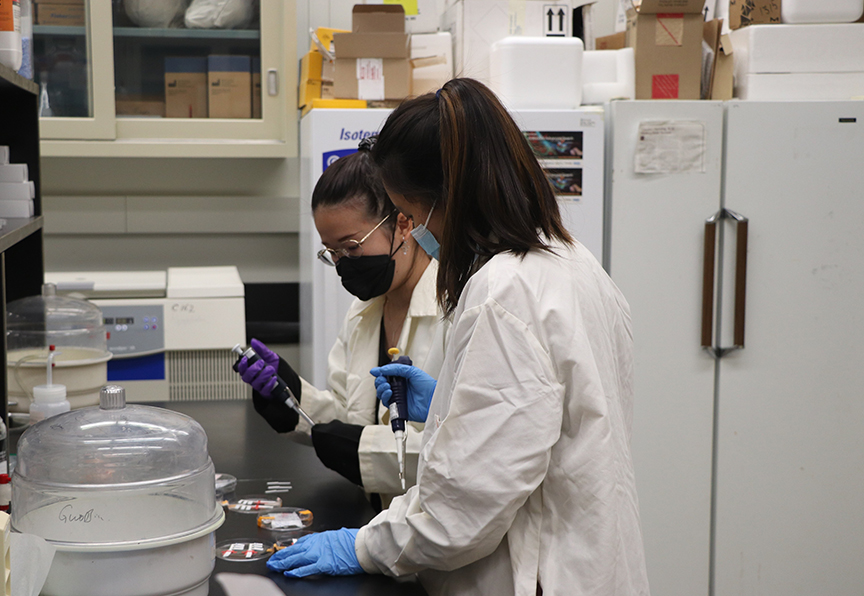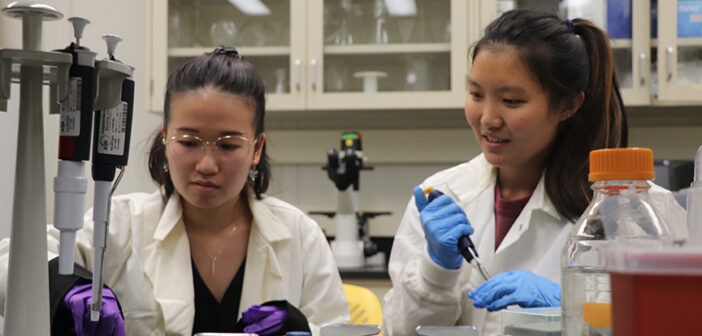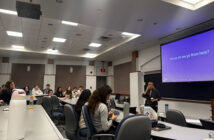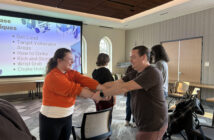A team of 11 Lehigh undergraduate students known as SicklED won the National Institute of Health’s (NIH) Healthcare Technologies for Low-Resource Settings Prize for their work on a new diagnostic device for sickle cell disease earlier this semester.
The team was recognized in the 2021 Design by Biomedical Undergraduate Teams (DEBUT) Challenge, a nationwide design competition between biomedical engineering programs. The DEBUT challenge is hosted by VentureWell, an organization that works with and helps to fund student innovators and the NIH.
This team, which was established four years ago, is a part of Lehigh’s Global Social Impact Fellowship (GSIF) program. According to the SicklED website, the team’s goal is to design a low-cost, point-of-care, sickle cell diagnostic device with the long-term objective of implementing it in healthcare systems in low and middle income countries, starting with Sierra Leone.
SicklED’s website states that sickle cell disease affects almost 230,000 babies in Sub-Saharan Africa each year with an estimated 50 to 90 percent of these individuals dying before the age of five. In previous years, the team was able to perform field research, working onsite and cooperating with local organizations in Sierra Leone.
Due to the COVID-19 pandemic, travel was impossible for the team during the past two years. The team members also faced restrictions, as only a limited number of students could enter the lab at a time. Team member Dream Intarachumnum, ‘22, said this made lab work much more difficult as it was hard to communicate procedures over Zoom.

Tiffany Pang, left, and Laura Duffany do their work in the lab. The final goal they work with is to make actionable changes to decrease the staggering rate of child mortality in the Sub-Saharan region of the world, and they won an award for their work with the GSIF. (Xinzhao Li/B&W photos)
Team member Laura Duffany, ‘23, said the team had to change gears during the pandemic.
“What COVID did is it made us shift our focus from optimizing the technology of our device to thinking about it from a more social marketing standpoint,” Duffany said. “So that’s when we started developing our website, started looking for grants to apply to, abstracts to submit.”
She said applying to the DEBUT challenge was one of the ways to help get the team name out there. The team won $15,000 which Duffany said they plan to invest back into the project.
“Winning this award within the United States has allowed for a lot more encouragement and credibility,” Duffany said. “(It has) certainly opened the door for us to apply to a lot more resources within the U.S.”
This winter, the team is planning to travel to Sierra Leone where they will test out their product and learn more on how implementation can proceed, Intarachumnum said.
She said solving this issue is about more than just creating a device — the device also needs to be distributed, and local diagnostic centers need to know how to properly use the device and transport patients diagnosed to proper areas to recieve care.
“(It provides) more motivation knowing how big of an impact (it would have) if we succeed,” Intarachumnum said.
SicklED is one of 12 unique teams that are a part of Lehigh’s GSIF program. The program, led by Khanjan Mehta, vice provost for creative inquiry and the director of the Mountaintop Initiative, provides students with an opportunity to have a global impact through various sustainable design projects in three different countries: Kazakhstan, the Phillipines and Sierra Leone.
“By their very design, all our teams are highly interdisciplinary teams because real innovation that changes the world happens at the intersection of concepts, disciplines, concepts and countries,” Mehta said.
The 11 members of the SicklED team come from eight unique majors. As a global program, Mehta said students in the program communicate with organizations of all sizes from individual villages that require support to national and international organizations.
He said the program is limited in many of its activities during the pandemic.
“The reality is that the COVID situation is going to just worsen the quality of life (for many countries),” Mehta said. ”That further strengthened our resolve to keep going.”






Comment policy
Comments posted to The Brown and White website are reviewed by a moderator before being approved. Incendiary speech or harassing language, including comments targeted at individuals, may be deemed unacceptable and not published. Spam and other soliciting will also be declined.
The Brown and White also reserves the right to not publish entirely anonymous comments.